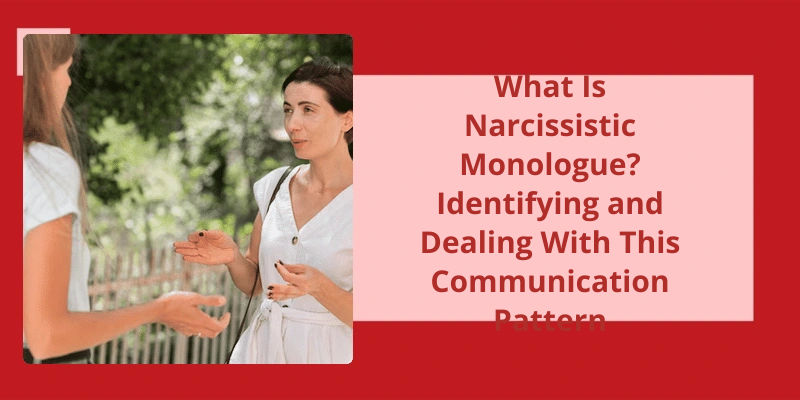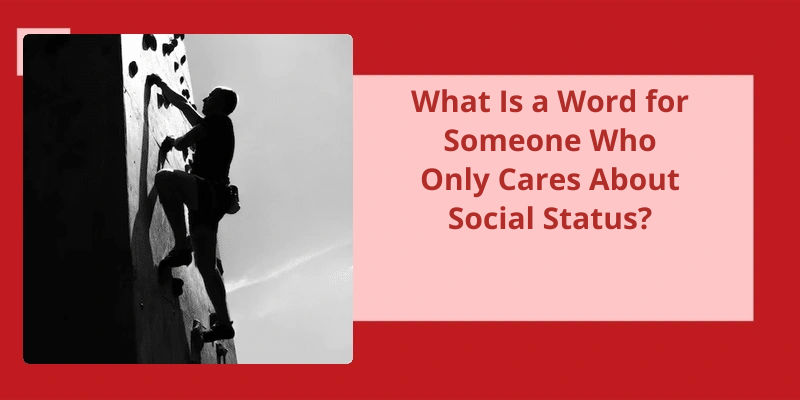Human beings are social creatures, thriving on connections and interactions with others. Our friends are often the people we choose to spend our leisure time with, seeking out companionship, shared interests, and entertainment. However, sometimes we may find ourselves feeling bored or disinterested in a friend's company, causing us to question what’s changed in the relationship. While there are many reasons why we may find a friend mundane or tedious to be around, it’s essential to understand the root cause of our feelings to determine the best course of action. Perhaps it’s a case of growing apart, differing communication styles, or a change in priorities. Whatever the case may be, acknowledging our feelings and addressing them with honesty and empathy can help us navigate these challenging social situations.
What Is the Definition of a Boring Person?
Boredom is a state of dissatisfaction and ennui that can manifest in a variety of ways. Some individuals are prone to being “bored” more easily than others, but the sensation can be triggered by a range of factors.
A boring person is someone who fails to engage the interest or imagination of others. They may lack the ability to express themselves in a compelling way, or fail to connect with others on a meaningful level. These individuals may appear lethargic or apathetic, lacking the energy and enthusiasm that inspire others.
This can result from a variety of factors – some people are simply less charismatic or engaging than others, while others may lack the confidence or experience necessary to connect deeply with others. In some cases, individuals may be actively disinterested in engaging with others, prioritizing their own comfort and convenience over the needs and interests of those around them.
Ultimately, it’s up to each individual to determine for themselves what they find interesting and engaging. While one person may find a particular individual or activity boring, another may find that same person or activity captivating and energizing. Learning to recognize and appreciate the diversity of interests and experiences that make us each unique is a critical part of cultivating a richer and more fulfilling life. Whether through exploring new hobbies and interests, engaging with others in meaningful ways, or simply taking time to reflect and recharge, we can all work to cultivate a richer and more satisfying life that’s free from boredom and disengagement.
The Psychology Behind Boredom and It’s Effects on Mental Health
- Boredom is a common experience for people of all ages and can have negative effects on mental health.
- Studies have shown that prolonged boredom can lead to feelings of depression, anxiety, and other mental health issues.
- Boredom can be caused by a lack of stimulation, unfulfilling tasks, or feeling a lack of control.
- However, boredom can also serve a productive purpose, such as allowing individuals to reflect on their lives and make changes.
- Engaging in activities such as exercise, hobbies, and socializing can help combat boredom and it’s negative effects on mental health.
As humans, we’re constantly changing and evolving, and so are our interests. It’s only natural that sometimes we outgrow our friendships and find ourselves feeling bored or uninterested in the company of certain people. However, it’s important to handle these situations with care and tact.
Is It Normal to Be Bored of Friends?
As you grow and evolve as an individual, it’s only natural that your interests and priorities in life will shift. It’s important to acknowledge that these changes may impact your friendships. Just because you were once close with someone doesn’t mean that you need to maintain that relationship if it’s no longer fulfilling or satisfying.
Furthermore, it’s not uncommon for people to experience social fatigue or burnout. If youre finding that spending time with your friends is leaving you feeling drained or unenthusiastic, it might be a sign that you need to take a step back and reassess. It’s important to prioritize your mental health and well-being, and that may include distancing yourself from certain individuals or groups.
It’s also worth noting that friendships arent meant to be stagnant. They should be dynamic and evolving, just like any other aspect of life. If youre feeling bored or uninterested in your friendships, it might be an opportunity to try new things or meet new people. This doesn’t mean that you need to cut ties completely, but rather, that you should be open to exploring new avenues and experiences.
Ultimately, it’s important to trust your instincts and honor your own needs when it comes to your friendships. While it can be difficult to say goodbye to old friends, sometimes it’s necessary in order to make room for new growth and opportunities. Remember that it’s okay to prioritize your own happiness and fulfillment, even if that means saying goodbye to people you once cared about deeply.
It’s important to acknowledge that friendships can ebb and flow, and that it’s okay to let go of relationships that are no longer serving you. Instead of feeling guilty or ashamed, focus on prioritizing your own needs and exploring new opportunities for growth and connection. With time, youll find that new and fulfilling relationships will naturally emerge, allowing you to continue growing and evolving as an individual.
How to Have a Conversation With a Friend About Feeling Bored or Unfulfilled in the Friendship.
- Choose a time when you and your friend can have a private conversation.
- Start the conversation with a positive statement about your friendship.
- Express your feelings honestly and without blame.
- Listen to your friend’s response without interrupting.
- Discuss ways to improve the friendship together.
- End the conversation with a thank you for your friend’s willingness to talk and work on the friendship together.
Learning how to not be boring can be a challenging task, but it’s achievable with some effort. It starts with focusing on fun things in life and being aware of the world around you. In addition, it’s important to avoid talking too much about oneself and instead ask questions and show interest in others. Being spontaneous, finding your sense of humor, and saying “yes” more often can also help bring more excitement and joy into life. Keep reading for more tips on how to stop feeling boring.
How Do I Stop Feeling Boring?
Feeling boring is a common experience that many people go through. It can be frustrating to feel like you arent leading an interesting life or to feel like youre not engaging with the people around you in a meaningful way. The good news is that there are many things you can do to stop feeling boring. One of the first steps is to focus on fun things in life. This could mean joining a sports team, signing up for a painting class, or attending a concert. When youre engaged in activities that you enjoy, youre more likely to feel invigorated and energized.
Another important step in learning how to not be boring is to stop talking about yourself too much. While it’s natural to want to share your experiences and interests with others, it’s important to also be interested in the people youre talking to. Ask questions about their lives and really listen to their responses. Show that you care about them as individuals and that you value their thoughts and opinions.
Be aware of the world around you. Read the news, learn about current events, and engage with the issues that affect your community. Being knowledgeable about the world and the people in it can help you to connect with others in a deeper and more meaningful way.
Being spontaneous is another key way to stop feeling boring. Take risks, try new things, and don’t be afraid to step outside of your comfort zone. This could mean trying a new food, going on a spontaneous adventure, or trying a new hobby. When you embrace the unexpected, youre more likely to experience new and exciting things that can help you to feel more alive and engaged.
Finally, finding your type of humor and saying yes more often can both be effective ways to stop feeling boring. When you’ve a sense of humor that resonates with others, youre more likely to connect with them and make them laugh. Saying yes to new experiences and opportunities can also help you to break out of your routine and try new things. It can be scary to step outside of your comfort zone, but ultimately, it can be incredibly rewarding.
Source: How Not to Be Boring & Get People Excited to Talk and Be …
Now that we’ve identified some of the key characteristics that make someone boring, let’s delve a bit deeper into each trait and explore why these tendencies can be such a turn-off. By understanding what makes someone dull, we can start to think about ways to avoid falling into these patterns ourselves and make sure we stay engaged, interesting, and fun-loving people. So, whether you’re trying to spice up your own social life or dealing with a perpetually dull acquaintance, read on to learn more about the behaviors that drive people away.
What Characteristics Make Someone Boring?
When it comes to social cues and what makes someone interesting, the list of characteristics that make someone boring is long and varied. One of the most prevalent personality traits that can make someone boring is a lack of humor. People who don’t laugh much, don’t smile much, or don’t find things funny, can turn out to be socially awkward and difficult to connect with. Genuinely funny people tend to be more outgoing, have better social skills, and are often the life of the party. So, having a good sense of humor is essential in social situations.
Another trait that can make someone boring is being a bad conversationalist. This can manifest in several ways, but one of the most common is being a poor listener. People who don’t listen to others, talk over them, or never ask follow-up questions, can quickly become boring conversational partners. On the other hand, people who’re good listeners and are genuinely interested in what others have to say tend to be more engaging and memorable.
Being inactive is another characteristic that often makes someone boring. People who spend all their time behind a computer, never go out, or never take up any hobbies or interests tend to be dull and uninteresting. Physical activity and adventure tend to be great social lubricants and can lead to exciting and memorable experiences.
Self-centered people are also boring. People who only talk about themselves, never ask questions about others, and have no interest in other peoples lives can be unpleasant to be around. Being considerate of others and empathetic are critical in social situations, and not being that way can make socializing difficult and unenjoyable.
Finally, people who actively dislike things can be boring. People who complain about everything, judge others harshly and find fault with everything they encounter can be tedious to be around. Being negative and critical is a surefire way to turn others off and make oneself uninteresting.
Being interesting often involves being curious, open-minded, and engaging with the world around us. People who lack these characteristics, exhibit negative traits like self-centeredness, inactivity, and being bad conversationalists, tend to be uninteresting and dull. So it’s our duty to break these habits and become the best versions of ourselves in social situations to have enjoyable personal relations and lead a fulfilling life.
Conclusion
In conclusion, finding a friend boring isn’t an uncommon experience in any relationship. However, it’s crucial to identify the underlying reasons for such a feeling and try to address those issues accordingly. Sometimes, it may be a matter of mismatched interests or a lack of common ground between the individuals. In other cases, it may be a personal preference or simply a phase that can be worked through with patience and communication. Rather than abruptly ending a friendship, it’s essential to first reflect on what makes the relationship valued and find ways to reignite the spark. Communication, openness, and understanding are essential components of any thriving friendship, and with these, one can navigate through any challenges that come their way. Therefore, it’s important to have open and honest conversations with your friend about how you feel, and work towards building a stronger and more meaningful bond.






